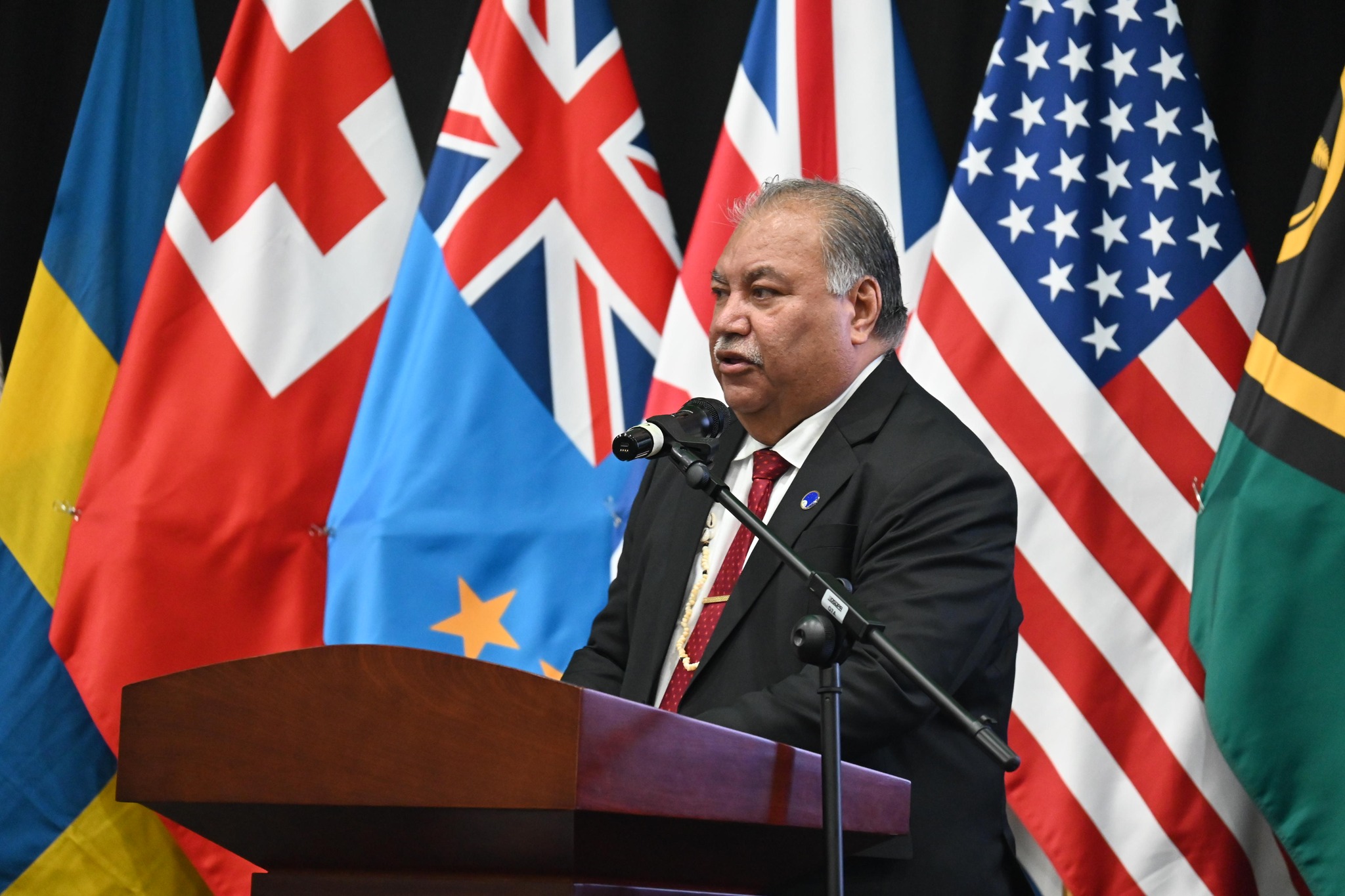Forum Secretary General, Baron Waqa has highlighted the critical need for sustainable fisheries management to safeguard the Pacific’s future.
Addressing the Honiara Summit on Pacific Islands’ Response to SDG14.4, Waqa reminded the Pacific Small Island Developing States (SIDS) of their deep, existential connection to the ocean and the vital role fisheries play in their economies and cultures.
The Pacific region, which is surrounded by vast oceanic resources, is home to some of the most valuable fisheries in the world. Tuna, for example, is one of the most important resources in the region, not only for food security but as a major economic driver. In some Pacific nations, over 80 percent of government revenue comes from tuna fisheries.
“In 2022, the fisheries sector contributed approximately US$3.2 billion to the GDP of Pacific Island countries,” he said, reinforcing the point that sustainable management of these resources is essential for the long-term health of both the economy and the culture of the region.
Waqa highlighted the critical importance of fisheries, not just as a source of income but as a cultural cornerstone for Pacific communities.
One of the main focal points of the summit was the role of regional organisations and frameworks in supporting sustainable fisheries management.
Waqa commended the efforts of various regional bodies such as the Western and Central Pacific Fisheries Commission (WCPFC), the Pacific Islands Forum Fisheries Agency, Parties to the Nauru Agreement and the Secretariat of the Pacific Community. These organisations, through their collective research, policy advice, and management strategies, have helped set global benchmarks for sustainable fisheries.
“I would like to take this opportunity to acknowledge the efforts and commitments of our regional organisations, including the WCPFC,” Waqa said. “All your efforts, and the respective roles you play, have all led to where we are today.”
While progress has been made, Waqa was quick to point out that emerging challenges require even more collaborative action. These challenges include the growing threat of climate change, which is altering the distribution and migratory patterns of tuna stocks, and the continued scourge of illegal, unreported, and unregulated (IUU) fishing.
“Climate change is altering the distribution and migratory patterns of tuna stocks, threatening the economic stability of our Small Island Developing States (SIDS),” he warned.
“Overfishing, driven by IUU fishing operators, continues to pose serious threats to the sustainability of our marine ecosystems.” The summit was not just about discussing problems, however. It was about finding solutions.
Waqa emphasised that addressing these challenges requires not only regional cooperation but also innovative and evidence-based solutions.
He urged the participants to focus on the implementation of policies that can make a tangible difference for Pacific communities.
“The 2050 Strategy for the Blue Pacific is our roadmap for a resilient and sustainable future,” Waqa explained.
“In the Strategy, Leaders committed to deepen our collective responsibility and stewardship of the Blue Pacific Continent, protect our sovereignty and jurisdiction over our maritime zones and resources, and strengthen our ownership and management of our resources.”
During the summit, Waqa also took the opportunity to address the issue of harmful fisheries subsidies.
According to research, global fisheries subsidies amount to billions of dollars, much of which supports private fishing enterprises and contributes to overfishing and environmental degradation.
“The scourge of IUU fishing on the marine ecosystem, our economies and on the livelihoods of our coastal communities must be curtailed. Studies have shown that USD$35.4 billion were provided as subsidies to private fishing enterprises for capacity-enhancing.
“We have a golden opportunity to address and curb harmful fisheries subsidies by supporting the work of the World Trade Organisation,” he said. “I echo the call by our Leaders encouraging all WTO Forum Members to work together to conclude the remaining pillars of the fisheries subsidies negotiations of overcapacity and overfishing.”
The commitment to reform fisheries subsidies aligns with global efforts to combat overfishing and protect the health of oceans worldwide. The Pacific region, with its unique challenges and leadership role, has the potential to influence global trade discussions on fisheries and sustainable development.
As the discussions at the Honiara Summit continued, Waqa made it clear that regional solidarity is the key to overcoming the challenges facing Pacific fisheries.













